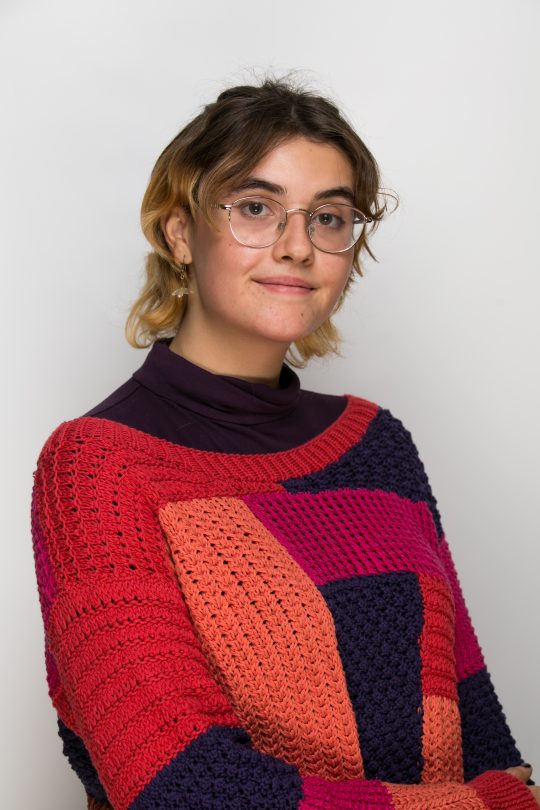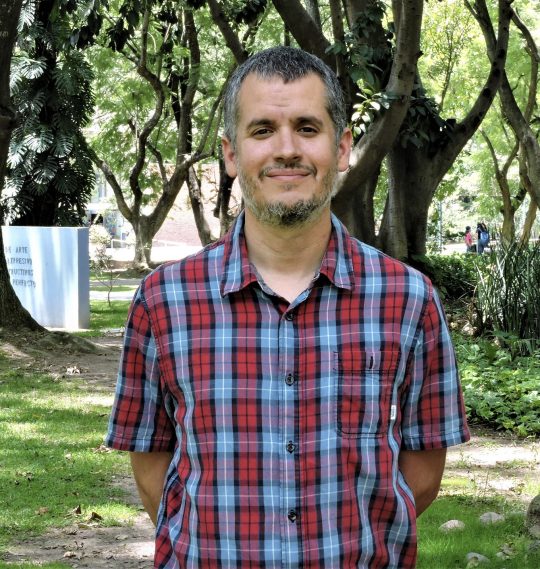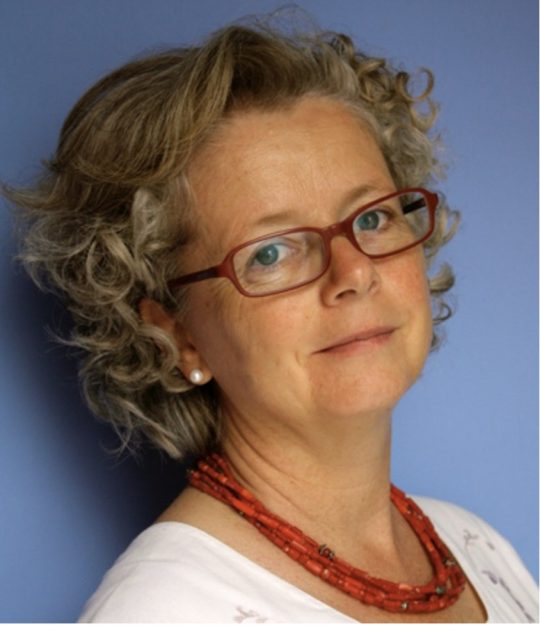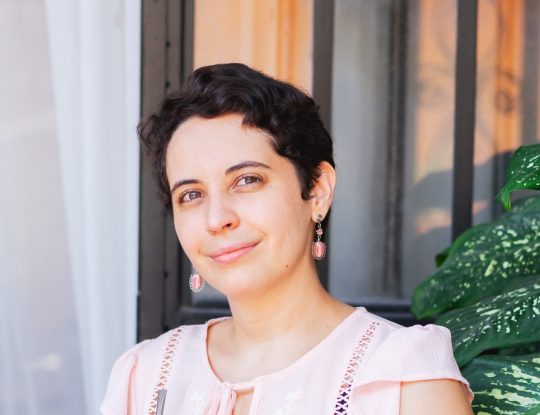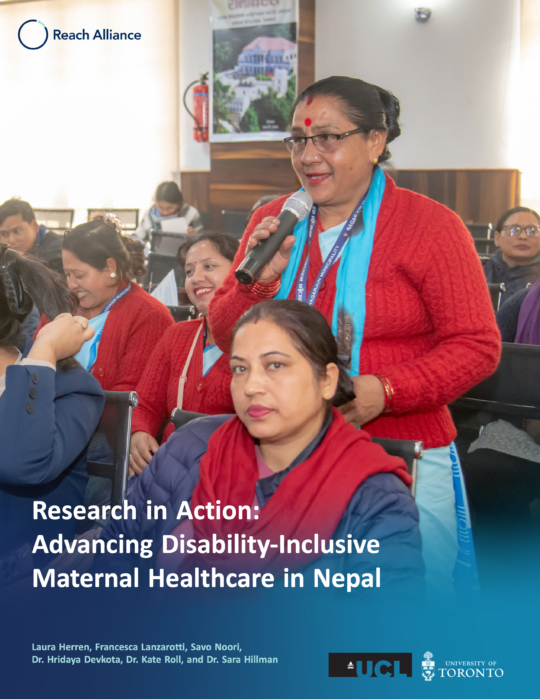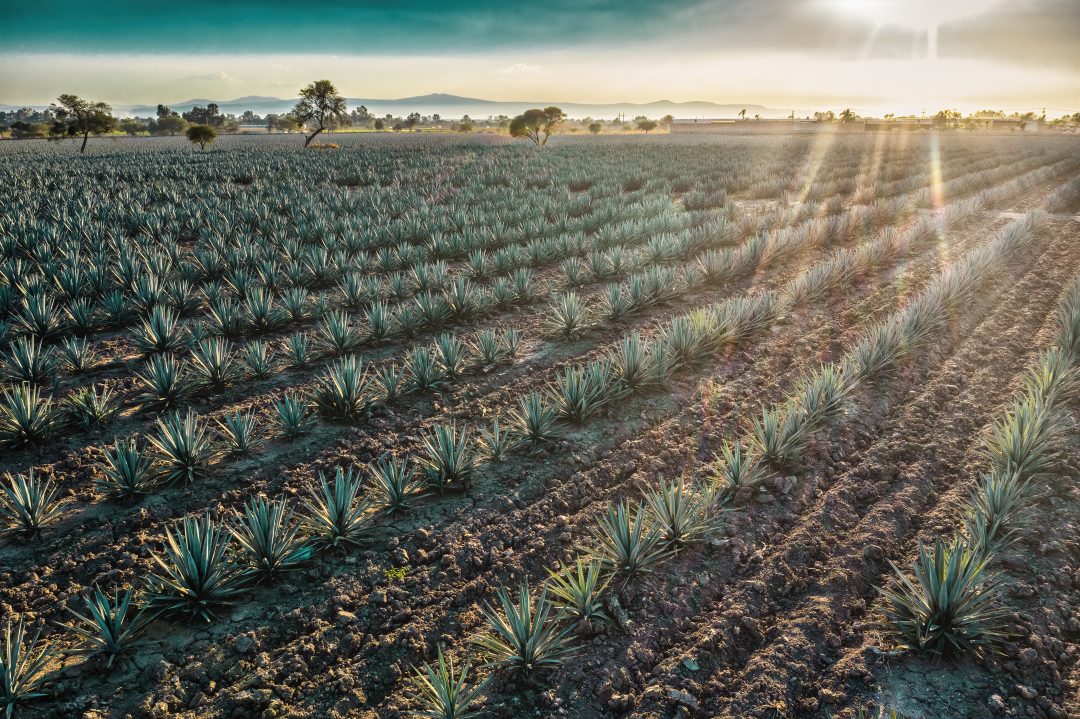Executive Summary
The Santiago River, which flows through the Mexican state of Jalisco, is one of the most polluted rivers in North America. A predominant source of this pollution originates from the industries and manufacturers surrounding Guadalajara, which have significantly expanded in the past 40 years. This pollution, which results in contaminated water, air pollution, and contaminated foods, drastically affects the health of residents.
As part of our research, we wanted to understand three collectives of (mostly) women who have taken it upon themselves to act on the environmental devastation and fight back. Each collective is located in a different community in the periphery of Guadalajara. The first initiative involves a collective of men and women who take care of a plant nursery. The second is a collective of women farmers who own or are married to someone who owns farmland. The third initiative is a water-treatment collective consisting mostly of women.
In this context, an initiative’s success is defined not only by the direct impact of its actions but also by its ability to survive and operate sustainably while retaining full autonomy. Given the many political and economic challenges these collectives face, participants view their continued operation as a success. Through our interviews, we found that the collectives faced two main types of issues: the first related to government inaction and the second related to sustaining community involvement, both for the survival of the initiatives and for local support of land defence.
Regarding the first issue, government inaction is only part of the problem. The government perpetuates the problem of land degradation and inadequately addresses the health-related impacts through suboptimal water treatment, and lack of communication of existing knowledge and research regarding the link between environmental degradation and health issues. It also seems to be taking the side of polluting industries.
Regarding community involvement, it can be difficult to recruit new participants, in part because many community members are sick and cannot participate in activities and workshops. Some community members don’t have time to set aside to help in the orchard or get involved in the water-treatment group. Some local backlash to their participation is also present.
Our analysis found three major elements that support the initiatives’ sustainability and knowledge-translation practices. These are women’s role in the household in connection to land defence, the social fabric between members of each collective, and the social fabric between different collectives and other partnerships.
Background
Throughout the mid-nineteenth century, a movement toward industry and industrial farming accelerated in Mexico, causing local territory displacement and a shift away from traditional agriculture. This trend ultimately led to a reduction of local communities’ autonomy and an increased dependence on foreign markets.1 This growth of industry influence in Mexico, especially in Jalisco, a state on the western coast, resulted in visible impacts on the natural environment. While women had long been involved in traditional agriculture, they did not participate in industrialized agriculture.
Women Excluded from Mexico’s Agricultural Industry
While previous studies have shown how women’s low participation in industrial agricultural practices has clear negative impacts, their involvement in agroecological practices proves beneficial not only to their own health, but to their family’s health because of their typical role as family caretakers. Research has demonstrated that women’s involvement in agriculture contributes to both increasing household food security and their financial agency.2 These types of leadership roles also give women a place of prominence and an ability to address their specific needs, including those of their families. Making up such a small part of the agricultural workforce, women are often left out and don’t reap the full benefits of organized farming groups.3
Industrial Pollution in the Region
The shift toward industrial agriculture has intensified exploitation of the soil and increased industrial waste dumping, causing massive contamination in the Santiago River, one of the longest rivers flowing through Jalisco.4 When visiting the banks of the river, we could tell by our sensory experience just how contaminated the waters are. Parts of the river have great masses of chemical foam accumulated, occasionally staining the surrounding soil and vegetation with a layer of black, oily film. The participants living in the river’s vicinity described the intense and unpleasant smell that wafts over nearby towns and can cause headaches. When shown the river during fieldwork, we were advised to wear a mask and bring ibuprofen to prevent headaches.
The environmental pollution created by the practices of these agribusinesses and industries
of Jalisco have caused great harm for those living in the Lerma-Chapala-Santiago basin. In 2010, the State Water Department (CEA) completed a study that examined traces of pollutants in children’s blood in the periphery region of Guadalajara. They found high levels of heavy metals and organic compounds.5 Pollutants correlated to industrial activity found in the river can be cancerous and corrosive when in contact with skin. They can also affect the reproductive system and impede kidney function. A study in Agua Caliente found that children there have abnormal amounts of albuminuria in their system, which is an indicator of kidney damage.6
Figure 1. A stream of the Santiago River that has been partially treated covers a nearby tree with a black film.
Pesticide use also has health consequences. While practices using agrochemicals have emerged in other staple agricultural economies worldwide, in Mexico, the application of these products is intensive.7 Pesticide exposure can occur through one’s occupation, diet, and environment (water, soil, air). Many inhabitants of Jalisco live along the Santiago River and its estuaries, both those involved in agriculture and others who still practise traditional farming in their gardens. Therefore, workers and inhabitants of the region are not just exposed to a high quantity of these contaminants but also chronically exposed.
Women’s Role in Volunteer Farming
Educational and social organizations are critical in empowering farmers to gain access to resources; build rural social capital; gain skills, information, and markets; and to increase their voices in public sector decision making.8 Hence, the agricultural organizations of the basin are key to improving not only the abundance of healthy, sustainable crops but also to elevate local voices that oppose industrialized farming and policymaking that enable such practices.
Through the three initiatives we examined, we saw how women can defend their land that is currently under threat in diverse ways. We aimed to understand how they use alternative methods such as agroecology (an integrative agricultural approach that balances different ecological principles, such as minimizing pesticide or fertilizer use or preventing soil erosion) or other ecologically sustainable methods to defend their territory and how they spread awareness about the highly relevant environmental deterioration to others living in the area.
About the Initiatives
The three initiatives we studied are in the Lerma-Chapala-Santiago Basin and specialize in using native plant species and traditional agricultural practices to renew and protect their land in the face of industrial pollution and environmental degradation.
For example, one of the traditional methods used is milpa, a technique that uses the symbiosis of mixed crops. Legumes have certain properties that allow them to fix atmospheric nitrogen into soils so plant roots can have access to this scarce but necessary macronutrient. Planting legumes and combining multiple crops also avoids issues caused by monoculture farming such as the rapid spread of disease and increased pest populations. In turn, this reduces the necessity to add more fertilizers and pesticides, resulting in more sustainable farming.
The first initiative is a collective of men and women living in the urban periphery of Guadalajara who take care of a communal orchard that serves as a plant nursery. The second is a collective of women farmers who typically own or are married to someone who owns farmland. The third initiative is a water-treatment collective consisting mostly of women. While these initiatives vary in their actions, they all work to renew and protect the land and the health of their community. Many members of the different collectives also know each other and are friends or family members — relationships that facilitate knowledge and material sharing such as tools.
Our team travelled to Guadalajara to conduct participatory research involving each of the three initiatives, and also interviewed academics at ITESO, the Jesuit University of Guadalajara. This process included interviews, focus groups, and visits to communities. Our team also participated in tours of the initiatives and surrounding areas, where we witnessed the extent of the environmental degradation. Daniela Gloss Nuñez, our advisor at ITESO, along with one of our researchers, Viviana Behrendt, aided with translation during interviews and focus groups. The data collected using these methods helped us understand each initiative’s operations as well as the personal experiences and opinions of community members.
Orchard/Plant Nursery Initiative
The orchard is part of a collective that acts to defend its territory. It was started by a married couple who own the orchard’s land in a peripheral municipality of Guadalajara. Unlike traditional orchards, it doesn’t grow many fruit trees. Instead, it acts as a nursery and grows native and climate-appropriate plants. Enclosed by tall brick walls, it holds hundreds of plants in nursery grow bags, as well as compost. Goats roam about in the space providing what will become compost. The orchard sells few decorative plants since most of the vegetation grown is used for replanting. In fact the orchard does not aim to generate income as a purpose — its real purpose is land defence. It is maintained by the family that owns it as well as friends, community members, and out-of-town volunteers.
Motivation
According to interviewed participants, one of the most prevalent issues in the community is members getting sick, which can be linked to industrial pollution. Out of the 11 houses situated along the street where the orchard operates, seven residents died prematurely and four others are currently dealing with serious illnesses.
Figure 2. Bagged plants intended for replanting in the plant nursery/orchard initiative.
Cancer, respiratory issues, and kidney failure are common according to both the Inter-American Commission on Human Rights Resolution and the participants we interviewed.9
One of the members told us that when they first started their initiative, their actions weren’t motivated by a critical defence of land but rather for the sake of “being good people.” With time, their understanding of the orchard’s role changed when they were introduced to the concept of territory. By grounding their land defence at a local level, members established connection between their work and the land they reside in, recognizing the effect it had on their quality of life. Their view of land defence gradually became more integrated with their territory, shifting from a more isolated and disconnected perception to one that is now connected to a broader understanding of environmentalism.
As such, members of the collective have connected the issue of sickness to their territory and its devastation. While they do not feel that they have the capacity to address the systemic causes of sickness directly, they believe that they can start addressing it by researching causal links and spreading awareness of the connections between the land degradation and community members’ health problems. Their environmental defence activities are now performed out of necessity, rather than, as one member put it, “walking alongside the guilty industries that were causing [this devastation].”
While the orchard serves as one of the main mechanisms of land defence, the collective doesn’t limit its actions to that. They also offer a “horror tour,” which our team participated in. It consists of a guided excursion of the region highlighting the environmental degradation of the city and its neighbouring areas, and covering topics from arsenic levels in deep wells to studies on pulmonary function in children. From our observations, the sensory experience and the physical connection that people experience on this tour result in an emotional connection to the issues presented. This emotional connection with the land reinforces the tour’s purpose to show why change is necessary for the well-being of the area’s inhabitants.
Members of the collective strongly believe that the promotion of agroecological practices is not reserved solely for experts. They lead workshops for children, encouraging them to plant native and climate-appropriate seeds and trees. One of their most recent activities included making seed “bombs” — seeds covered in mud that they threw onto a nearby hill in hopes of regenerating vegetation. They also participate in agriculture festivals that allow for an exchange of seeds, ideas, and awareness about sustainable agriculture and community support for communal orchards and defence against land degradation.
Collective of Women Farmers
The next women’s collective has 10 permanent and 25 temporary members. They all have direct or indirect access to farmland, either by owning the land or else through their husbands’ owning it. The group serves as a support group for its members but also shares material and initiatives, such as microorganisms and compost.
Motivation
In our interviews with participants, it became clear that environmental pollution and contamination was one of the primary motivations to use agroecological methods. The contamination causes sickness in the community, spread mostly through the consumption of water.10 Because some of the women involved with the collective have sick relatives and are also their main caregivers, they cannot participate as much as they want to.
Members also recounted having seen the landscape and climate alter, and with it, traditions disappear. We learned that some of their motivation comes from relearning traditional methods, which often lead to more sustainable agriculture. An example of this trend is the use of milpa that we described earlier — an ancient method of planting that incorporates one corn crop with bean crops surrounding it.
Land Defence Strategies
Some of the agroecological methods used include producing natural fertilizing foliar spray (i.e., for spraying onto leaves) as well as growing various microorganisms to combat pests and aid with plant growth. These resources are often put to common use, with one farm hosting a large pile of organic matter. Members add prime matter such as worms, cow manure, and compost to the pile, which is then later used as natural fertilizer.
People travel to other farms and collectives to learn about what agroecological methods are used there and then return home and implement those techniques. Growing microorganisms in large tanks, as Figure 3 shows, is one of the many examples in this initiative.
While growing these organic products is not often as lucrative as growing products with pesticides, the notions of agroecology and protection of the earth are more important than making profits. During a focus group, many members reiterated how “the earth does not owe us, we owe the earth.” Practising agroecology is a way to give back to the earth.
Water Treatment Group
The third collective is situated in a small town in the southeast of Guadalajara in the Lerma-Chapala-Santiago Basin and works to protect water. When it started, the collective hosted water classes where members learned about and discussed the history of water and its contamination. The classes had 40 different themes, including how to filter and sanitize water. Community members first learned what they’d lost to contamination, such as clean water, before taking any form of action. These classes not only fostered knowledge sharing but also created a place for community members, specifically women, to unite. They concluded that while there’s no one solution for cleansing the river, everyone is encouraged to explore their own forms of land defence.
Its current initiatives include water sanitation for drinking purposes, and a natural water-treatment plant that works to clean some of the sewer water before it reaches the Santiago River. This plant is akin to a constructed wetland, using porous rocks and plants to filter the water. The collective is also looking to expand and will soon be active in 12 different communities to conduct different water sanitation experiments.
Motivation
Figure 3. Bacteria and fungi grown in large tanks are used as natural pesticides or other ways to aid plant growth.
Initially the group of women who started the collective came together when a mine had plans to occupy some of the agricultural lands surrounding the town. The leader of the collective described how the thought of breathing in morning air filled with dust particles had motivated her to want to act and defend her land. Ultimately, they managed to prevent the mine from being established, but it took a significant emotional, mental, and financial toll on those who were involved.
Since then, the collective’s activities have pivoted and now focus on water sanitation, another key issue in the region. This community bordering the Santiago River (which the New York Times referred to as a “slow-motion Chernobyl”), doesn’t have potable water.11 Instead of using tap water, residents need to buy bottled water for cooking and drinking. The price for bottled water, which is owned by multinational corporations, is excessive.
Land Defence Strategies
Group sessions that include community members and members of the collective organized together to learn how to make water filters. They each cost CAD 10 and can process 200 litres of water, using sand from the mountains or activated carbon. Using these filters, the collective is able to sell filtered water for a fifth of the price of bottled water. The funds amassed from these sales first go to community development initiatives, then to the women who participate in the sanitation process. Each woman receives approximately 200 pesos (CAD 15) per week.
The natural water treatment plant follows a relatively simple process. First, a ditch at the entrance collects sewer water and redirects part of it to a treatment zone. The water begins its treatment in a sediment tank before going into a one-metre-deep basin populated with plants like red plantain, papyrus, and Alcatraz flowers, which were found by trial and error to thrive there. Its bottom layer is full of porous rocks that are high in sulfur, which help to create an ecosystem of plants and bacteria that will help filter the water and decrease the number of contaminants.
The collective also works with academics, including ITESO, who help the group by involving their students and partly funding water sanitation projects through research grants. Recently, the collective received funds they had applied for years before from a private foundation. This will help scale up some of the current initiatives to 12 more neighbouring communities.
Finally, the collective has been hosting embroidery sessions every Wednesday for the past eight years. Members told us that these sessions created space for them to both socialize and discuss the collective, as well as discuss various environmental problems the community faces. The discussions lead to potential advocacy measures. While they embroider, members connect with each other, and lean on each other for emotional support, which they find re-energizes them.
Figure 4. Part of the composting matter used in the farming collective.
Common Barriers
Through meeting and interviewing members of these three initiatives, we observed multiple patterns of operation as well as common obstacles that challenge their very survival. Throughout this study, we found that specific Jalisco political situations and community involvement are the two major factors that affect these initiatives’ long-term survival.12
Political Obstacles: Perpetuating Land Degradation
Although the initiatives diverge in their approach to land defence and local context, they share common threats to their survival. The government perpetuates the land degradation and inadequately addresses the health-related impacts by not regulating and protecting the water. The two main wastewater plants in the area — El Ahogado and Agua Prieta — cleanse the water of only organic compounds but not industrial pollutants such as heavy metals.13 Regulation of drinking water is inconsistent and can be completely absent from some villages. A study in the Chapala and Poncitlán municipalities showed that out of 99 households in these areas, over 78 per cent of the participants believed that the government is not doing enough to fulfill their human right of access to clean water.14 In other words, the land degradation that these initiatives are combatting is being partially caused or worsened by the state.
In general, government partnerships can provide many benefits to programs because the “delivery of services in parallel with the public sector reduces the scope for the latter to learn new techniques of working and improving its methods.”15 The fact that these projects, especially in the water-purifying collective, cannot receive these benefits highlights another way that the government’s actions and inaccessibility for partnership negatively impacts the projects’ potential for sustainability.
Limited Access to Knowledge
According to participants, the government also presents a second threat to the initiatives by reinforcing a lack of public awareness regarding the connection between the river’s contamination and worsening health conditions of the affected municipalities. People we interviewed highlighted this lack of accessible knowledge as a major obstacle for community involvement, especially in the orchard and water-purifying initiatives, because community members have more difficulty in relating the defence of land to their own individual needs. For example, the 2010 State Water Department (CEA) study of pollutants found in children’s blood was not released to the public until 2019 — almost a decade after the study.16
Another example of the state neglecting to release information relating to significant contamination is its misleading narratives regarding the water treatment plants such as El Ahogado. The Inter-American Commission on Human Rights Resolution insists “that the State has not provided an alternative account questioning the mentioned illnesses and has not provided information on the measures to guarantee that the water can be consumed.”9
One participant in the orchard emphasized how community members don’t see the visible impacts of pollution on their quality of life other than through significant events, such as fires or the new appearance of mosquito clouds when there didn’t use to be any. Because of the initially invisible nature of this pollution’s effects on human populations, the state’s limitations on public access to this information results in a direct threat to the continued survival and operations of all the initiatives, especially for the orchard and the water treatment plant. This explains the efforts by these communities and the interviewed collectives to distance themselves from government partnerships or avoid government recognition.
Unfortunately, each project struggles with adequate community involvement which poses a threat to their survival. Focus group participants in the plant orchard collective cited rampant health issues as a major cause for community members avoiding participation. The municipality’s low socioeconomic status is another reason: people simply do not have time to help in the orchard or attend workshops regarding sustainable and traditional agricultural methods.
Hopelessness also causes a lack of participation as members of the communal orchard highlighted. An interviewee gave an example of this type of attitude: “F*ck! I go to work all day. They exploit me — they pay me a pittance — and you are going to tell me that I am going to die, and my children are going to die?” The accumulation of multiple hardships that women in this area experienced often results in a feeling of powerlessness and defeat.
The younger generation is often hesitant to join these land-defending initiatives, especially in the communal farming group in the semi-rural periphery of the city. People cited an increase in urban migration and decreased interest in agriculture-related occupations as reasons for this trend, which poses a problem especially for the farmers’ initiative. We heard that collective members were concerned about this younger generation’s tendency to veer away from tradition, not only for the interest of the collective’s continuation, but also because of a trend of reduced value placed on ancestral land and its defence.
Lack of community involvement is also manifested through local backlash, especially in the water purification initiative. When the water treatment collective successfully managed to prevent a mine from being established near their town, many of the local inhabitants were divided in their views because of possible negative economic impacts. The distrust in the clean water distribution also undermines community involvement — the inconsistency of garrafón (refillable water tanks that are typically positioned on the roof of houses) regulation has instilled mistrust in the region regarding the safety of accessible water.
Lessons Learned
Three underlying factors were most relevant to successfully support the community-led collectives’ functioning, sustainability, and knowledge-transfer practices.
- Women’s role in the household strengthens their connection to land defence so female-led land defence can be directly related to their concerns.
- Social fabric between members of each collective is integral to their sustainability, helping to mitigate potential emotional exhaustion.
- The social fabric between different collectives and other partnerships allows growth across initiatives through exchanges of information and resources and increased public awareness.
These overarching factors play an important role in what form land defence takes in the periphery of Guadalajara and highlight how these social relationships can be crucial in smaller-scale autonomous community-led initiatives.
Women’s Relation to Land Defence
Women’s role in the household — including childcare — has a critical relationship to their participation in land-defending collectives. In these collectives, most of the women have families and are responsible for domestic tasks such as cooking. Because agriculture and food consumption are so directly linked to the land that produces food, those who are typically responsible for cooking it value the food sources. By extension, there is also an increased interest in protecting land from contamination and degradation because of this link to women’s domestic responsibilities in the region. The farmers’ collective emphasized their desire to provide children with healthy foods that are grown without agrichemicals.
Figure 5. Corn grown by the collective of farmers.
The care of children is also highly relevant to women’s connection to land defence. In 2009, an eight-year-old boy named Miguel Ángel Lopez Rocha died of arsenic poising after falling into the Santiago River.9 This was a very prominent case that brought more awareness to the contamination not only within the surrounding communities but also internationally, when it was reported on by the New York Times.
This is one of the most significant examples of how the defence of territory is related to protecting children in this region. However, less dramatic cases can include the prevalence of mosquito clouds, which prevent people, and children, from being outside at dusk. Because these factors are related to the well-being of children, women in charge of domestic activities are acutely aware of potential risks related to land degradation. This includes what they and their families consume, the potential risk of illness, and decreased quality of daily life. Some examples of reduced quality of life include the smells in the area and children not being able to play freely around bodies of water that may be contaminated.17 The correlation between women’s domestic duties and the maintenance of land integrity is crucial to the involvement of many members across all three initiatives.
Most of the people who take part in collectives are mothers and grandmothers, which creates common ground and allows for inclusion of the family within land-defence initiatives. For example, within the orchard, specific activities are offered to include children in learning about agroecology and actively practising land defence. The seed-bomb plantings we mentioned earlier (when parents accompany their children to learn how to make seed bombs and then throw them onto hills) are a type of replanting suited for children’s amusement and engagement. Mothers can participate without sacrificing time with their children.
The orchard/plant nursery fosters a comfortable environment for mothers to bring their children while they volunteer, and by extension this establishes underlying support and care for mothers within the collective. The other collectives have less direct family involvement. In the farmers’ collective, there are instances where multiple generations of a single family are heavily involved as members.
When we visited the water purification collective, we met some people from a neighbouring village who wanted to get involved in the collective and had brought their children along with them to learn about the treatment plant. Even though this was not a formal event, the environment and culture of the collective was inviting enough for mothers to feel comfortable involving their children and pursuing their interest simultaneously. The social connections within each initiative also strongly enforce the welcoming environment.
Social Fabric Within Initiatives
Across all three collectives, the social relations and interactions within them are integral to their continued operation. Multiple members echoed that without friendship between the volunteers, the initiatives would not be able to survive or operate as they do now. Because of this rapport between members, volunteers can continue to participate thanks to the accommodation that the group provides them. For example, in the orchard, one of the members mentioned how the orchard volunteers helped her with her young children when she volunteered. This is important for expanding community involvement, and other members described this collective as “not a machine — [the orchard] is alive and the door is open.”
Figure 6. An outdoor kitchen in the orchard/plant nursery with tortillas, mushrooms, and vegetables cooking on the wood stove.
Apart from the social activities involved in their land defence such as leading workshops or participating in festivals, in both the orchard and the farmers’ collective, members eat meals together, strengthening the internal social fabric. The meals’ ingredients themselves are often sourced from these collectives or other people in the community. In the orchard, they built an outdoor kitchen (see Figure 6) so that they can eat together after volunteering. The water treatment collective’s embroidery group also reinforces social bonds between the members.
One of the reasons that each collective’s social fabric is important involves the significant effort that members put in. Members can experience time commitment, physical effort, and emotional tolls. When dealing with such serious issues as illness and destruction of land, members feel emotional exhaustion as a natural response. According to participants, social support within each initiative can mitigate both emotional and physical fatigue by having a space that can relieve those efforts, either through meals or other social activities.
Partnerships and Social Fabric Between Initiatives
One of the most frequent observations that participants made was the extent to which the social network of land-defence initiatives surrounding the area outside Guadalajara supports their own land defence. In other words, intercollective and organizational relationships are crucial to the collectives’ functioning and sustainability. This relates to the acquisition of new agroecological practices, expansion of the collectives, and knowledge sharing with the surrounding public.
When we went to the farmers’ initiative and the water-purification initiative, both invited large groups of women across other land-defending collectives to give them tours and information about their practices. Both times the large groups had meals with their guests and socialized. In the farmers’ collective, we heard multiple women discussing different techniques and ingredients to use for the foliar spray. This type of exchange was one of many relating to a transfer of ideas and methods used by women between different initiatives. The casual and friendly rapport we witnessed between the land-defence collectives indicates how this type of relationship can be a reliable and accessible source of new techniques. Focus group participants in the farming initiative described similar experiences.
In the orchard collective, a similar exchange of knowledge occurred through the development of the seed bombs, a Japanese agroecological method that one of the members learned about from a social interaction. These types of gatherings seen in the farming and water-purifying initiatives can also lead to expanding the initiatives to other areas, as we saw with the water-purifying collective. From our interviews, we learned that other people from the neighbouring village joined the tour because of their interest in implementing a water-treatment plant in their own area. Fostering this type of social connection through large gatherings can increase the connection that collectives have with neighbouring communities and further the reach of their land defence.
The expansion of initiatives and increased awareness were supported by cross-collective relationships, but academic partnerships were also vital. ITESO Jesuit University of Guadalajara and many of these collectives have established relationships of trust where students can learn about the land defence through research projects or studies. This provides an important opportunity for the information to reach a broader audience. Not only can this type of relationship increase the breadth of collectives’ knowledge sharing, but it can also directly increase people’s involvement in the initiatives.
Within the orchard and the water-purification initiatives, student researchers who are interested in the collectives tend to participate directly.
The people we spoke with described this as a useful way to keep these projects running because students were involved as volunteers. There is also financial support that aids with the maintenance of collectives (for example, the water-purification collective has received grants that aid in covering costs.) Ultimately, both the academic and cross-collective social relationships result in significant growth and sustainability for the collectives to survive and continue to defend their land.
Conclusion
Our study demonstrates the value of small-scale, grass-roots collectives like agroecology and eco-feminist movements. Social innovation combines land defence with emotional and social connection. These collectives are redefining the role of care that women provide to include the land as it relates to their health and the livelihood of their families. As one participant noted, the “act of caregiving” at home and on the land is not just a role they assume but is a political act and example of their leadership and advocacy efforts.
Further research could contribute to a better understanding of how partnerships between collectives and external partners, such as academics and other societal actors, could be leveraged to further social change. Another research avenue could include stakeholder consultations with younger generations to understand how to get them involved to ensure the sustainability of these collectives.
Acknowledgments
This research inscribes itself in a broader research project led and coordinated by Daniela M. Gloss at the Instituto Tecnológico de Estudios Superiores de Occidente in Guadalajara, Mexico. This project investigates the politics of care and women’s struggles for land and place in Jalisco through participant observation and semi-structured interviews. We thank Daniela M. Gloss, Gregorio L. Martinez, and many other researchers at ITESO — this research work would not have been possible without them.
We also thank our faculty mentor, Erica Di Ruggiero, our team coach, Vadim Levin, and Moni Kim, who accompanied us on our field trip, for their help and support. Finally, we thank the Reach Alliance for the opportunity and support offered throughout our research process.
The research project was conceptualized by Viviana Behrendt (VB), Margaux Ronciere (MR), and Angela Vastis (AV). Data was collected by VB and MR, with contributions from AV. All authors coded data. VB and MR analyzed and interpreted data. The case study report was drafted by VB and MR, with input from AV and revised by VB and MR based on feedback. All authors approved of the report’s final version.
MASTERCARD CENTER FOR INCLUSIVE GROWTH
The Center for Inclusive Growth advances equitable and sustainable economic growth and financial inclusion around the world. The Center leverages the company’s core assets and competencies, including data insights, expertise, and technology, while administering the philanthropic Mastercard Impact Fund, to produce independent research, scale global programs, and empower a community of thinkers, leaders, and doers on the front lines of inclusive growth.
MUNK SCHOOL OF GLOBAL AFFAIRS & PUBLIC POLICY
The Munk School of Global Affairs & Public Policy at the University of Toronto brings together passionate researchers, experts, and students to address the needs of a rapidly changing world. Through innovative teaching, collaborative research, and robust public dialogue and debate, we are shaping the next generation of leaders to tackle our most pressing global and domestic challenges.


